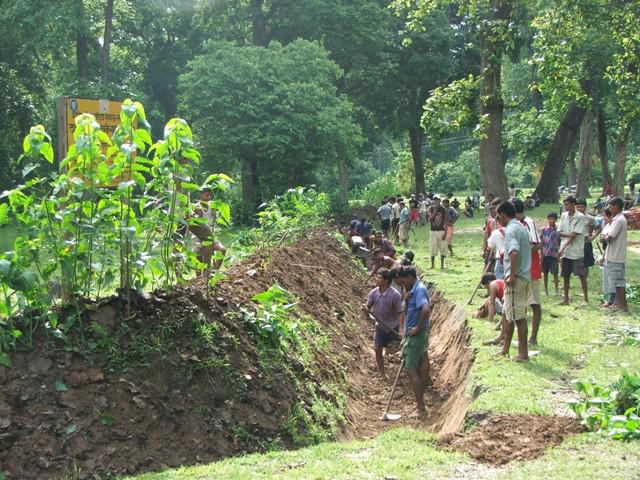The benefits of nature conservation - Implications of Economic Instruments to reduce human-wildlife conflict in the case of three VDCs of Royal Bardia

The continued destruction of biodiversity, poor conservation outcomes and minimum community participation has heightened the concern about the communities' role in the resources use conservation (Agrawal and Gibson, 1999). Communities have an important role to play for the conservation of biodiversity in protected areas (Berkes, 2007). Recognizing such roles of communities, different concepts had been developed in past decades in the form of community-based conservation, integrated conservation and development projects, community managed conservation etc., (Hulme and Murphree, 2001). However, presumption of predictive models of social-ecological systems and deducing the universal solutions as panaceas for overcoming the problems of biodiversity conservation has been found to ignore the nature of complexity in such social-ecological systems as well as the necessity of managing commons at multiple levels (Berkes, 2007; Ostrom, 2007; Ostrom et al., 2007). To understand the impact of institutions and institutional arrangements in the form of community-based conservation projects a study was carried out at Nepal's Bardia National Park.
Aims and Objectives:
The overall aim of the project was to find out the impacts of incentive measures and management approaches used to resolve conflict between park and local community and to explore the effective measures to resolve the threat to community as well as biodiversity conservation.
The specific objective of the second field work was to:
1. Collect necessary gap data for further information
2. Identification of the variable, through in-depth analysis, important for causing conflict, resource extraction and the negative attitudes towards the ongoing development projects.
3. Understand overall impact of institutions
4. Role-playing game taking variables from step second for improving knowledge of the current scenario and to initiate the collective learning of stakeholders on system components and dynamic processes and economic incentives with respect to park management.